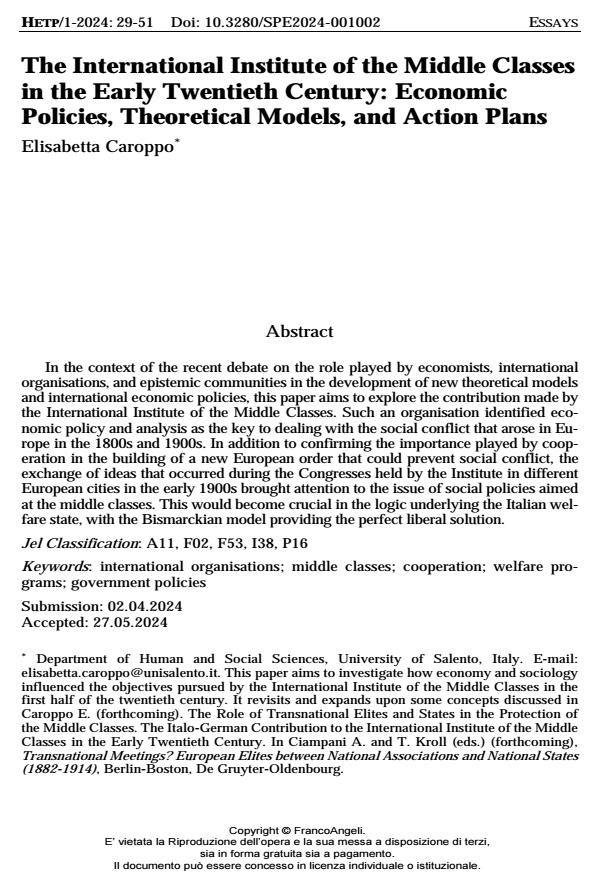The International Institute of the Middle Classes in the Early Twentieth Century: Economic Policies, Theoretical Models, and Action Plans
Journal title HISTORY OF ECONOMIC THOUGHT AND POLICY
Author/s Elisabetta Caroppo
Publishing Year 2024 Issue 2024/1
Language English Pages 23 P. 29-51 File size 135 KB
DOI 10.3280/SPE2024-001002
DOI is like a bar code for intellectual property: to have more infomation
click here
Below, you can see the article first page
If you want to buy this article in PDF format, you can do it, following the instructions to buy download credits

FrancoAngeli is member of Publishers International Linking Association, Inc (PILA), a not-for-profit association which run the CrossRef service enabling links to and from online scholarly content.
In the context of the recent debate on the role played by economists, international organisations, and epistemic communities in the development of new theoretical models and international economic policies, this paper aims to explore the contribution made by the International Institute of the Middle Classes. Such an organisation identified economic policy and analysis as the key to dealing with the social conflict that arose in Europe in the 1800s and 1900s. In addition to confirming the importance played by cooperation in the building of a new European order that could prevent social conflict, the exchange of ideas that occurred during the Congresses held by the Institute in different European cities in the early 1900s brought attention to the issue of social policies aimed at the middle classes. This would become crucial in the logic underlying the Italian welfare state, with the Bismarckian model providing the perfect liberal solution.
Keywords: international organisations; middle classes; cooperation; welfare programs; government policies
Jel codes: A11, F02, F53, I38, P16
Elisabetta Caroppo, The International Institute of the Middle Classes in the Early Twentieth Century: Economic Policies, Theoretical Models, and Action Plans in "HISTORY OF ECONOMIC THOUGHT AND POLICY" 1/2024, pp 29-51, DOI: 10.3280/SPE2024-001002